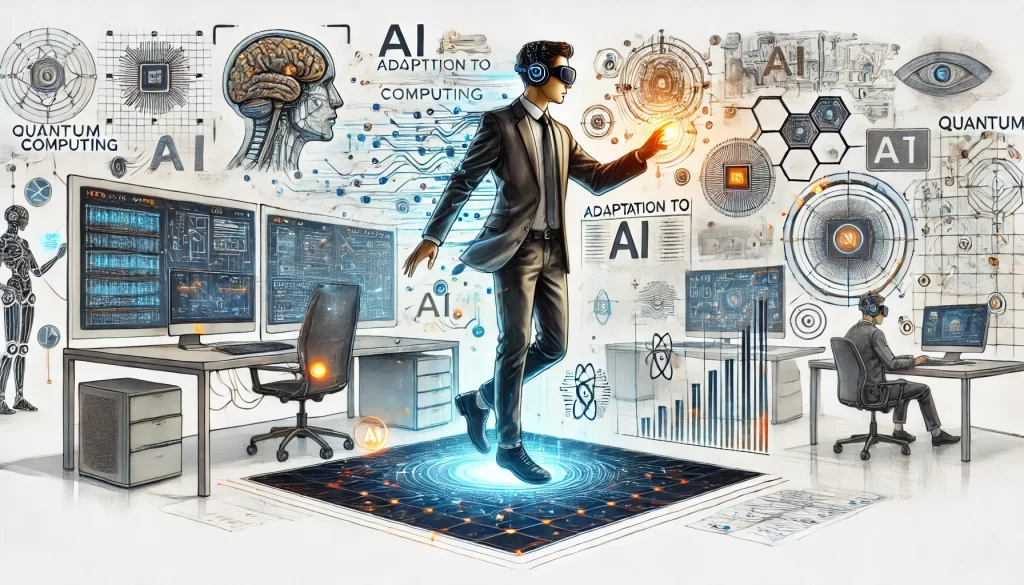The rapid advancement in technology, particularly with AI agents and Quantum Computing, is reshaping the landscape of the IT industry, posing both opportunities and challenges for individual contributors. Here’s a comprehensive look at how software engineers and other IT professionals can prepare for these changes, identify the roles most vulnerable, and strategically pivot their careers to stay relevant and competitive.
Understanding the Impact
AI Agents: AI is automating tasks ranging from basic data entry to more complex problem-solving scenarios. Tools like ChatGPT, automated testing software, and AI-driven development platforms are changing how software is written, tested, and deployed.
Quantum Computing: Although still in its nascent stages, Quantum Computing promises to revolutionize areas that require immense computational power, such as cryptography, material science, and complex simulations. Its impact on mainstream software engineering may be limited in the short term but significant in specialized fields.
Vulnerable Roles
Routine and Repetitive Tasks: Positions focused on repetitive coding, testing, or system maintenance are more susceptible to automation. AI can optimize these processes, reducing the need for manual intervention.
Basic Data Analysis and Entry: Roles that involve simple data manipulation or entry are likely to be automated as AI and machine learning models become more adept at handling data efficiently and accurately.
Lower-level System Monitoring and Support: Basic IT support, including system monitoring and troubleshooting, can be managed by AI systems that can predict and react to system anomalies automatically.
Preparing for the Future
Upskilling and Reskilling
Learn AI and Machine Learning: Understanding AI algorithms, data processing, and machine learning can help in transitioning to roles that design, manage, and improve these AI systems.
Quantum Computing: For those in computational fields, gaining a basic understanding of quantum algorithms and quantum mechanics can be beneficial as this field grows.
Strategic Role Shift
Move to AI-Enhanced Roles: Positions that leverage AI to enhance productivity, such as AI system trainers, supervisors, and maintainers, will become more crucial.
Specialize in Unautomatable Areas: Focus on creative, strategic, and complex problem-solving roles. These include AI ethics, policy-making, and roles requiring emotional intelligence.
Continuous Learning
Stay Updated: The tech field evolves rapidly. Regular training sessions, workshops, and courses on emerging technologies are essential.
Networking and Community Engagement: Engaging with professional communities and networks can provide insights into industry trends and job opportunities.
Ethical Considerations and Advocacy
Understand the Ethical Implications: As AI takes on more roles, understanding its ethical implications is crucial. Engaging in or starting discussions on AI governance and ethical standards will be increasingly important.
Advocate for Responsible AI Use: IT professionals can lead advocacy efforts for policies that mitigate the risks associated with AI and Quantum Computing, ensuring these technologies are used responsibly and inclusively.

